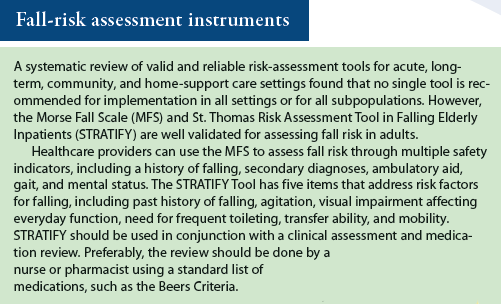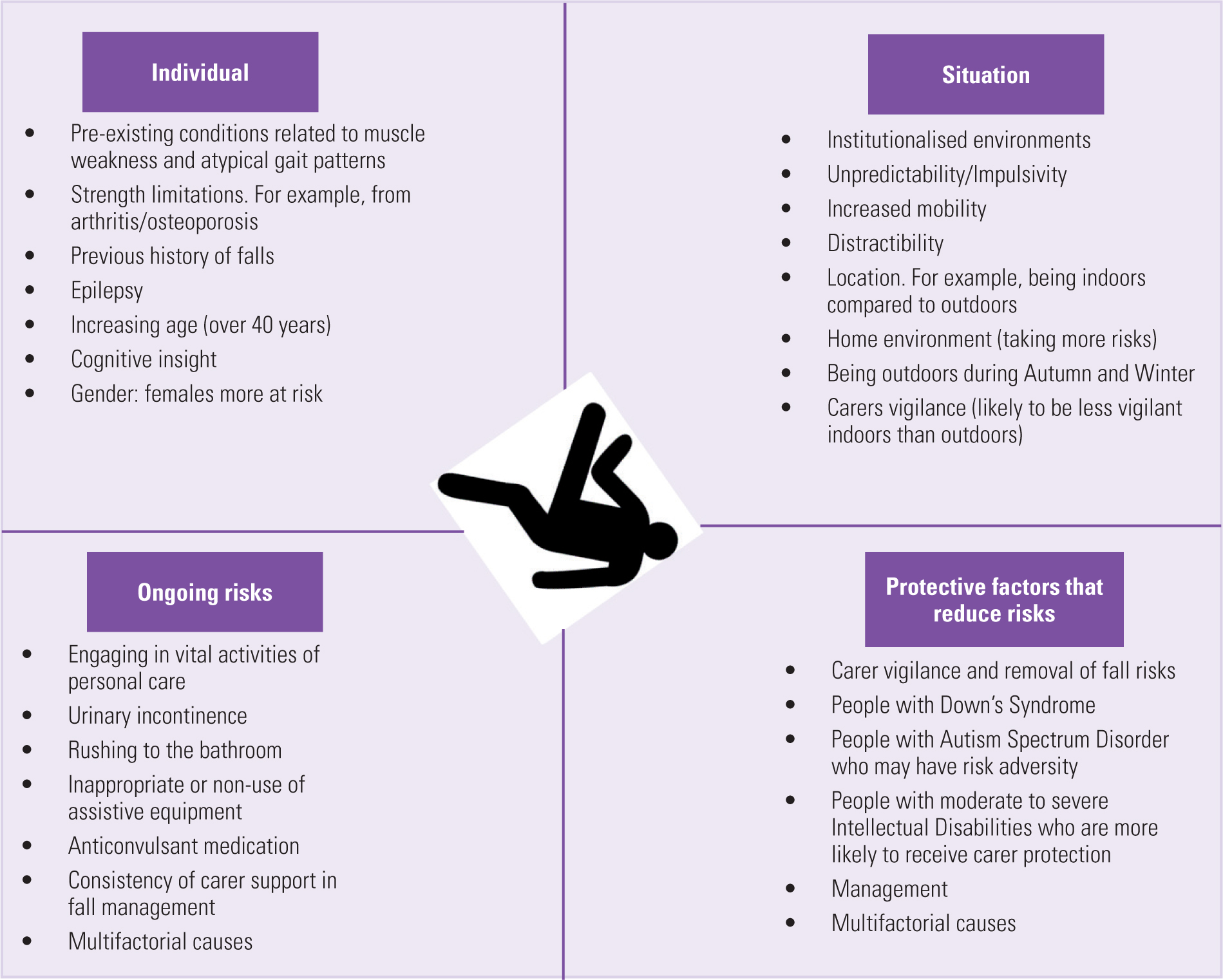The smart Trick of Dementia Fall Risk That Nobody is Talking About
Table of ContentsThe 8-Second Trick For Dementia Fall RiskFacts About Dementia Fall Risk Revealed7 Simple Techniques For Dementia Fall RiskOur Dementia Fall Risk IdeasThe 2-Minute Rule for Dementia Fall Risk
In the community, insufficient street lights or unsafe creeks and landfills may likewise trigger mishaps. Loss Risk Analysis Device (FRAT) is a 4-item falls-risk testing device for sub-acute and household treatment. The FRAT has 3 areas: drop danger condition, danger aspect list, and action plan. A Fall Risk Status includes information concerning background of current drops, medicines, mental and cognitive condition of the client.If the person ratings on a danger factor, the equivalent variety of points are counted to the person's autumn risk rating in package to the far appropriate. If an individual's fall risk rating amounts to 5 or higher, the individual is at high threat for falls. If the patient ratings only 4 points or reduced, they are still at some risk of dropping, and the registered nurse should utilize their best professional evaluation to take care of all autumn threat aspects as part of an all natural care strategy.
These conventional methods, in basic, help develop a safe environment that reduces accidental drops and marks core precautionary procedures for all clients. Signs are essential for people at danger for falls.
The Main Principles Of Dementia Fall Risk
For instance, wristbands ought to consist of the client's last and given name, date of birth, and NHS number in the UK. Information need to be printed/written in black against a white history. Just red color ought to be made use of to signal special person status. These suggestions are consistent with current growths in patient recognition (Sevdalis et al., 2009).
Items that are as well much might call for the client to connect or ambulate needlessly and can possibly be a hazard or contribute to falls. Helps stop the person from heading out of bed without any assistance. Nurses reply to fallers' phone call lights a lot more swiftly than they do to lights launched by non-fallers.
Aesthetic impairment can greatly cause drops. Keeping the beds closer to the floor decreases the danger of falls and serious injury. Placing the cushion on the floor considerably reduces loss danger in some healthcare setups.
Excitement About Dementia Fall Risk
People who are tall and with weak leg muscular tissues who attempt to rest on the bed from a standing position are most likely to drop onto the bed since it's also low for them to reduce themselves securely. Also, if a tall person attempts to rise from a reduced bed without assistance, the client is most likely to drop back down onto the bed or miss the bed and fall onto the floor.
They're designed to promote timely rescue, not to try this site prevent falls from bed. Aside from bed alarms, raised guidance for risky people additionally might assist stop drops.

Patients with a shuffling stride boost loss possibilities dramatically. To minimize fall danger, footwear ought to be with a little to no heel, thin soles with slip-resistant tread, and sustain the ankles.
Dementia Fall Risk Can Be Fun For Anyone
Individuals, specifically older adults, have minimized aesthetic capacity. Lighting a strange environment helps enhance exposure if the individual need to rise at evening. In a research, homes with adequate lighting report fewer drops (Ramulu et al., 2021). Improvement in lighting at home might reduce loss prices in older grownups (Dementia Fall Risk). Using stride belts by all healthcare carriers can advertise safety and security when aiding people with transfers from bed to chair.

Caretakers are efficient for assuring a protected, safeguarded, and safe setting. However, research studies showed extremely low-certainty proof that sitters decrease autumn threat in acute care hospitals and only moderate-certainty that options like video clip monitoring can minimize sitter usage without enhancing loss threat, suggesting that sitters are not as beneficial as originally thought (Greely et al., 2020).
Our Dementia Fall Risk PDFs

Raised physical fitness reduces the danger for falls and restricts injury that is sustained when autumn transpires. Land and water-based exercise programs might be similarly beneficial on balance and stride and thus lower the risk for drops. Water workout may pop over to these guys add a favorable benefit on balance and stride for women 65 years and older.
Chair Increase Workout is an easy sit-to-stand workout that assists strengthen the muscle mass in the upper legs and buttocks and enhances flexibility and independence. The goal is to do Chair Increase workouts without using hands as the client ends up being more powerful. See resources section for an in-depth guideline on how to carry out Chair Increase workout.
Comments on “The Main Principles Of Dementia Fall Risk”